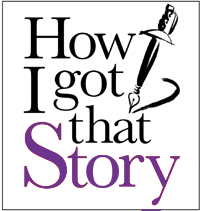Gilbert Garcia will be the first to tell you that he’s somewhat of a failed musician. But his day job, as music editor of the San Antonio Current, comes a pretty close second to his dream gig. He writes reviews, interviews artists, and most importantly, gets to stay close to the music scene.
In “Police Report,” he casts a light on the so-so talents of The Police, a band that seemed well-aware of their limitations when they willingly disbanded, but can’t help succumbing to the lucrative attraction of the reunion tour. In “The Unbearable Lightness of Paul,” he defends former Beatle Paul McCartney from critics who continually compare him with John Lennon. And finally, in “Haley’s Comet,” he muses the assembly line star-making machine of American Idol through Haley Scarnato, a contestant who’s just OK.
You mentioned you were a failed musician. What do you play?
Mainly I play guitar. The band I put the most effort into is a band called Mea Culpa (meaculpamemphis.com). We’ve actually put out three CDs. I think our CDs are pretty good, but it obviously wasn’t anything we were able to take very far. I still get together with them about once a year. We’ll maybe play a show or do some recording or something, so I haven’t totally given that up.
What do you think the role of a music critic ideally should be?
I’ve always felt that the music critic should provide more than a consumer guide. Robert Christgau famously called his review column the “Consumer Guide,” but at the same time it was always more than that. He always tried to put music in some kind of cultural context, and I think that’s ideally what the best critics have been able to capture: the spirit of the music, its cultural context, and describing what it sounds like. They’re giving the reader a sense not only of what music they want to listen to, but also who made this music and why it matters.
I noticed that all three of your winning pieces are, in a way, portraits of mediocrity. They’re all about more established artists who people generally perceive as mediocre. How did you come about writing them?
Over the course of the year, I write different kinds of things. But I think the things we ended up picking as entries were a little unusual. In each case, I felt like there was something about each artist or each subject that I could give a slightly different take on — the McCartney piece especially.
He’d gotten so much acclaim, but also so much derision. I wanted to make some sense of it — particularly with him because he suffered a lot for not being John Lennon. He never claimed to be and never necessarily wanted to be, but he’s sort of punished in a way for the talent that he had as opposed to his more admired partner. I thought there was a way of getting past the knee-jerk response that some people have.
I remember you mentioned that sometimes as a music critic, it’s easier to write about the mediocre acts than the really good ones.
That’s right. I think in some way it’s easier for journalists in general to write a negative story than a feel-good story. It’s a natural thing. With most of the pieces that I’ve submitted for the AAN contest, generally there’s a little bit of reverence or they poke fun a little bit. If you’re writing about an act that you admire unconditionally, you’re not likely to poke fun at them. It’s easier and more fun to write about something, to poke fun at and find fault with [it].
Out of the three pieces, which one was the most challenging to write?
I would say the McCartney one was probably the most challenging because I’m probably more knowledgeable about him.
When you’re a musician working in a recording studio, there’s the old line about how when recording technology expanded to the point where people had 64 tracks to work with, you’re almost giving the musicians too many choices. Back in the day, when you recorded on a 4-track, you didn’t have that many choices, so in a way it was easier. Technology gave you more options and it became harder.
When you know too much about a subject, you almost have too many approaches you could take. With the other two pieces, it was much clearer to me what I wanted to say about them.
Read the stories that garnered Garcia a first-place finish in Music Criticism (circulation under 55,000):
“The Unbearable Lightness of Paul“
“Police Report“
“Haley’s Comet”
Part of the 2008 “How I Got That Story” series, in which Academy for Alternative Journalism fellows reveal the processes of the writers and editors who won first-place AltWeekly Awards. These interviews also appear in Best AltWeekly Writing and Design 2008.








